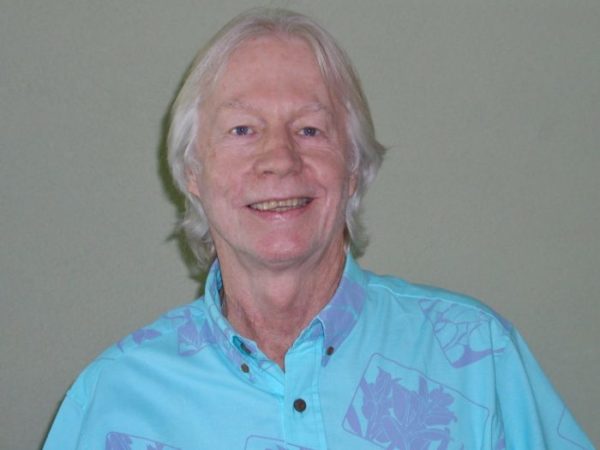
I started on March 12, 2021, to begin to put together my thoughts to share with you. That date is a rather auspicious one for Hale Kipa, since it was exactly one year ago on March 12, 2020, that we celebrated the Grand Opening of the Harry and Jeannette Weinberg Hale Kipa Youth Services Center on Old Fort Weaver Road. That momentous occasion was the culmination of years of effort by many people and the generosity of many institutions, organizations, and individuals, to make the dream of a home for Hale Kipa a reality. However, the glow from that wonderful event did not last long because the State and the Country shutdown due to COVID almost immediately after the Grand Opening.
In the intervening year, much has happened including the death of more than 500,000 Americans, the loss of businesses, jobs, and the ongoing challenges with depression and mental health. At the same time, since there are other ways to look at the past year, I would remind as Lee Cataluna did, that there were some positive things that resulted from the pandemic. They include the ability of our natural resources in Hawaii to recover and for me, and I hope for us, the chance to take a deep breath, step back, and ask questions like, What truly matters? Am I living the life that I truly want to live? I do not want to belabor that point, but I do want to say that what has become clear is that our definition of “normal” is often anchored in the way things have always been. And if the pandemic has taught us anything, it should be that there is not the level of predictability or control in our world that many of us may have assumed and wanted. For change is both inevitable and essential. I am often reminded that the absence of change is death. And we can either change willingly and see it as a learning and growing experience, or we can resist and go kicking and screaming. I happen to be relatively pain averse, and I as a result am probably one of those that embrace change more readily and rapidly than others. But that does not necessarily mean that is an easy or simple process. As I have been thinking about where we are in March of 2021, several questions and thoughts come to mind.
I wonder how I have changed and how I will be different going forward? I know that I have been reminded that health matters, and that I need to be conscientious about paying attention to taking care of myself to assure that I have the best capacity to resist the next virus or whatever the next health crisis might be. Please note, that I am assuming that COVID-19 will not be the end of these types of challenges. In addition, I have been reminded that I am a part of a community and that I am interdependent with all the people with whom I share space on this island and in this state. And that sense of social and community responsibility was made most manifest to me with the mandate to appropriately social distance and wear a mask. I am constantly reminded of that because when I put on a mask, I am doing that not only to protect myself, but probably more importantly, to protect others. Since I am now being vaccinated, I am not as susceptible to severe illness or death from COVID-19. But I will still wear a mask because while I may not experience either the most potentially dangerous and damaging consequences of COVID-19, I can still be a carrier of the virus and test positive. That means that in spite of the fact that it might not be a full viral load, I can still transmit COVID-19 to those who have not been vaccinated.
Lt. Governor Josh Green has made it clear that 20% – 25% of the population may never agree to be vaccinated. And so, given my lay person’s sense of what a vaccination means, those individuals will remain at risk of very severe illness and/or potentially death. And that raises a question for me about: What do we as a community, society, or we at Hale Kipa as an organization and an employer, do about that? How do we protect them, those we serve, and us on an ongoing basis?
The past 12 months have also changed the way that we think about work with telecommuting (remote work) and telehealth. That has led to very interesting conversations about how work will be different in the post-COVID era. A very excellent recent piece in a Harvard business publication was titled, “COVID Killed the Traditional Workplace. What Should Companies Do?” And now that many people have had a year of telecommuting – something that was frequently discussed before COVID but probably not very extensively implemented – we now are in a situation where people have been working remotely, and now actually expect that when things go back to normal, that normal will include telecommuting. Does that mean people are in the office one day a week? Two days a week? Or are we back to expecting people in the office five days a week? Does that mean all people or some people? And in the Human Service field, we have had the opportunity to use telehealth as a medium for providing services. And so, another question that comes up might be, How much of that will continue? Will we go back to primarily face-to-face contact with the youth, young adults, and families that we are privileged to serve? Or will we come up with some hybrid combination?
For Hale Kipa, these questions carry an extra valence, given that “relationship” is a core value in both the work that we do with those we serve, and with our staff and Board. That prompts questions like is it real to think that virtual interactions can equal the benefit of face to face in person contact in building the connections that are fundamental in a therapeutic relationship and in building the community of the agency? And what might be the ideal balance or mix of virtual and in person contact that best aligns with who we are, what we do, and who we want to be?
I realize that I am painting this in a rather black and white frame, and that does not do justice to the complexity of the new normal that we will all be creating as we go forward. I am hopeful that the majority of the population will be vaccinated. I am hopeful that every organization, including Hale Kipa, will make thoughtful choices about what is in the best interest of (in our case) those we are privileged to serve, who are central to our mission, our purpose, and our existence, but also, for those who provide those services: our staff. Work-life balance is a critical criteria or guiding principle of trauma-informed care. And the past year has demonstrated that people can work from home, be productive, and do quality work. But more importantly, it also demonstrated that they might not need to use/lose an hour, two hours, or three hours a day commuting to be able to fully do their jobs.
There are far more questions for me at this point than I have answers to. But I am looking forward to some very thoughtful conversations about, How will the world be different at Hale Kipa? How will we be different as individuals? and What will I do differently as a result of what I have learned in the past year?



